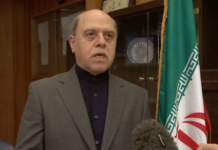
COMMENT: By Rukuwai Tīpene-Allan
“Welfare dependent”, “inferior”, “savages”, “natives”…
Walking through Parliament, I head to my office in the press gallery, passing gilded portraits of reporters who came before, and I recall that the people who adorn these walls were the same people who published some of the most racist rhetoric that has ever been printed, rhetoric that has shaped our society and the way the public perceives my people.
That’s how I feel every day walking into my office and, while there are days I feel numb to it, there definitely are days when it shakes me and makes me feel alone — because not only does the space not look like me or represent me, it also celebrates those who oppressed the very thought that someone like me could exist.
A good friend of mine often reminds me that “growth and comfort cannot coexist,” and, ultimately, that’s why I continue to put myself in this uncomfortable environment because I know my people deserve to have their perspectives represented.
- READ MORE: NZ plans ‘fairer’ health sector shake-up – DHBs scrapped, new Māori agency
- ‘Clear’ inequity for Māori in health care – report
I know growth exists here because, for me, comfort sure as hell doesn’t.
However, the discomfort level has felt even more oppressive than usual over the past couple of weeks as Māori have been the centre of attention in parliamentary debates, with Māori-focused health initiatives being called separatist.
Attempts by Māori to claim tino rangatiratanga, the right of self-determination as promised in te Tiriti o Waitangi, are scoffed at.
High-level political banter follows that basically amounts to: “Shut up, Māori. You’re not special. You’re lucky to have us managing you so just try to conform. Try to be a Pākehā like us and your life will be much better.”
It’s about me and my whānau
While some New Zealanders probably see this debate as robust and necessary, I don’t believe they understand the overwhelming effect it has on Māori personally.
This is because while non-Māori may hear phrases like, “Māori are more likely to be diagnosed with type-2 diabetes than non-Māori counterparts,” what I hear is that I am more likely to be diagnosed with type-2 diabetes.
When you hear that Māori are twice as likely to die from cancer as the average New Zealander due to inequities in the health system, what I hear is that my siblings are more likely to die of cancer.
When you hear that Māori will probably die seven years younger than other nationalities, what I hear is that my parents will probably die seven years younger than my friends’ parents.
To non-Māori, these are just statistics. But for Māori, it is literally a case of life and death.
So why wouldn’t Māori want to see more money and energy put into Māori health? Why wouldn’t Māori want a health system created and managed by Māori?
The very existence of disparities is racist. It makes sense that we would want to pull away from a system where it seems that just being Māori is a deficit.
Stop the rhetoric
This is the reality we know and understand too well. This is also why hearing non-Māori debate what is good for Māori and whether it’s a viable option for New Zealand is sickening. It’s painful and once again it’s uncomfortable.
While my years in journalism have taught me to avoid making assumptions, I often think that parliamentarians must know how their words influence and affect the country, resulting in discomfort at best and outright racial discrimination at worst.
Hearing the echo of their own words in hate speech on the streets must be enough for them to take care with how they speak about Māori.
If people dying directly from the outcomes of racial discrimination is not enough to stop the rhetoric, what will?
These thoughts are my reality, the reason I make that lonely walk through the press gallery every day.
Because the fact of the matter is that while the majority of our national leaders talk about how Māori can be better, I have to live it and be one of the bridges between the political world and the public and ensure that te iwi Māori is informed on the issues that affect us all.
I don’t get to hang my Māori hat up at the end of the day. Walking away would be the easy option.
But when that thought rears its head, and when unseen voices whisper at me that it’d be easier to just give up and try to fit in with the Pākehā instead, I remember the wise words of another Māori who challenged the rhetoric of what a Māori should be, and I get on with the job:
“It is preposterous that any Māori should aspire to become a poor Pākehā, when their true destiny, prescribed by the creator, is to become a great Māori.” – Tā James Himi Hēnare
Rukuwai Tīpene-Allan is a journalist for Te Ao Māori News. She has also worked on Te Kaea, Kawekōrero and Rereātea. This article first appeared on Māori Television’s website and has been republished on Asia Pacific Report with permission.













































